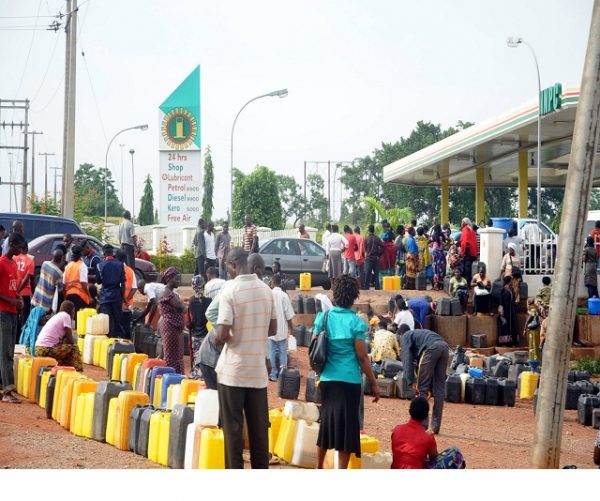Nigeria is the 12th largest crude oil producer in the world, contributing about 3% of the global crude oil production. This makes it the largest crude oil producer in Africa. It is also the ninth country in terms of gas reserves in the world, has the largest gas reserves in Africa, and contributes about 8% of the global liquefied natural gas supply.
Despite its crude oil reserves profile and its installed refining capacity of 445, 000 barrels per day, 70% of its domestic petroleum products demands are met through petroleum importation. This cost the country around $62 billion in 2014, an amount that is sufficient to meet the initial investment requirement to build four refinery plants, each with operating capacity as the combined capacities of the existing dilapidating refineries in the country. This amount is also higher than what the country received (averagely around $56 billion) from crude oil exports in the same year.
As at 2014, Nigeria imported 886 million barrels of petroleum products, making it the 13th largest petroleum importer in the world. For each barrel of petrol imported, Nigeria government paid at least $8 per barrel, which tallied the total fuel subsidy payment to about $7 billion in 2014.
These elephant figures sound outrageous to so many developing countries that wish they had that much. The wealth competition between nations is partly motivated to improve well-being and development of citizens, but in Nigeria, its oil and gas resources have brought more harm than benefits.
As I write this, hundreds are on fuel queues ready to pay any amount, if they can just get fuel.
The corruption and mismanagement of petroleum funds are responsible for this plight, and it appears obvious that Nigeria cannot afford to continue with the petroleum subsidy.
It is only when the crude oil price is at any price below $40 that the Nigerian government will not pay for subsidy, and because Nigeria is exposed to petroleum price volatilities and market uncertainties, petroleum subsidy can never be sustainable.
With the increasing demand for petroleum products signaling more subsidy payments, such cannot be feasible as the expectation on the government is at the highest level ever. The pending austerity measure will have to scrap all subsidy payments.
However, with immediate effect, savings from absolute subsidy removal have to be invested in reviving and building sufficient refining capacity required to meet the average 33 million barrels petrol demand in the country, so that petrol market price per litre can still be within the usual affordable price range within the country without being subsidised.
If subsidy is removed without corresponding sufficient refining capacities, then Nigerians should be ready to pay on average N200 per litre, and even more depending on the market fluctuations.
With Shale oil and gas discoveries, Nigerian oil and gas may no longer be as favourable as before, which means decline in revenue resulting from decline in crude oil price. This will also mean that the government will not have sufficient income to meet up with the skyrocketing subsidy payments. Thank God, there is no provision for fuel subsidy this year!
The only feasible option is to refine enough of what we require and utilise other petroleum reserves domestically to meet residential, commercial, industrial and transport sector demands, thereby propelling the economy, boost export baskets and maintain a reasonable level of export earnings.
Nigerian existing oil reserves will finish in 2068 (at the current level of production and reserves), and we have to start thinking about alternatives and new discoveries.
Natural gas reserves are 90 times more than oil reserves in the country, but the required infrastructure to make the natural gas useful are not there; hence, it is flared to the air, making the country the second worst country in terms of gas flaring in the world. If more gas infrastructures are put in place and the gas-power turbines (including the new ones) are supplied with sufficient gas feeds, then electricity access will increase, jobs will be created, cost of production will reduce, well-being will increase, and the economy will thrive.
Energy diversification, operational refineries, and adequate supply of gas to power turbines will help revive industries and cure the country from Dutch disease. This will entice investors to come and invest in the country, as the cost of production is cheaper and Naira currency is cheaper (courtesy of the recent devaluation of the currency). With the continuous flow of foreign investment in the country, demand for the Naira will increase, Nigerian foreign reserves will increase, and the value of the Naira will eventually appreciate and normalize.
As we prepare for a new Nigeria in couple of days, we have to be extra cautious and decisive about important decisions especially those related to the petroleum and energy sector.
All refineries must start operating at least above 70% operating capacities (currently operating at 16%), new ones must be built, subsidy must be totally removed, industrial sector must be bailed out, and economy diversified.
Nigerians must be ready to adapt to some difficult times for a while, and wait to benefit from the resulting effects of these difficult decisions.
Photo Credit: Nationalthinktank.org
About the Writer: Ahmed Adamu is a Petroleum Economist and the President, Commonwealth Youth Council.


